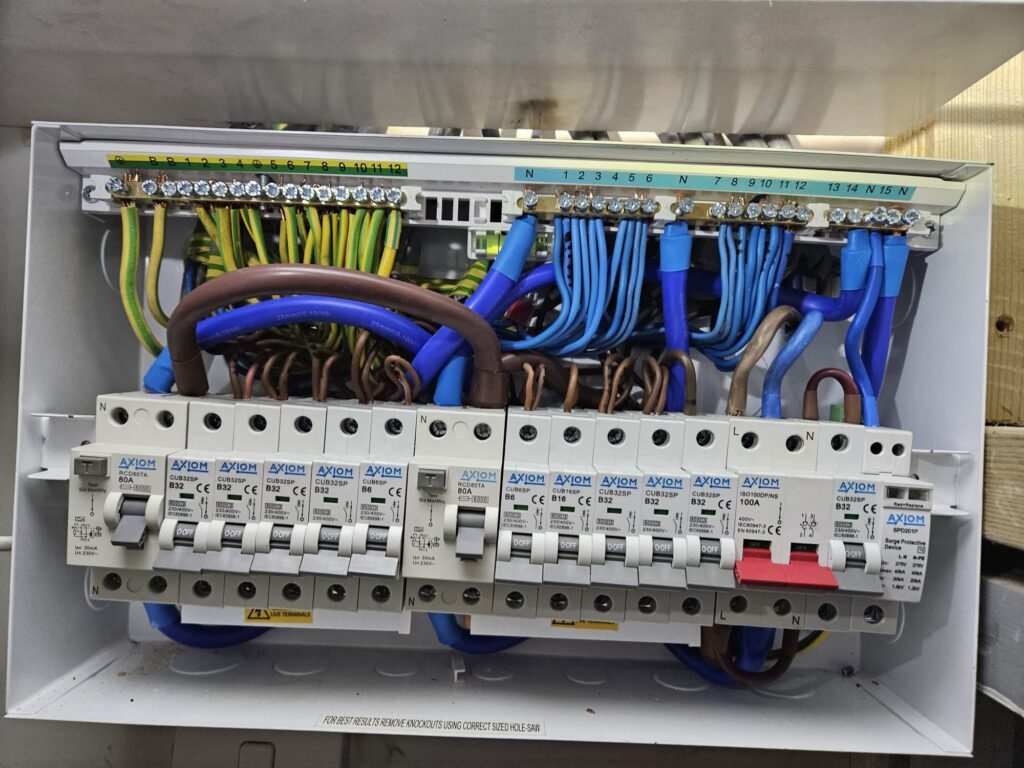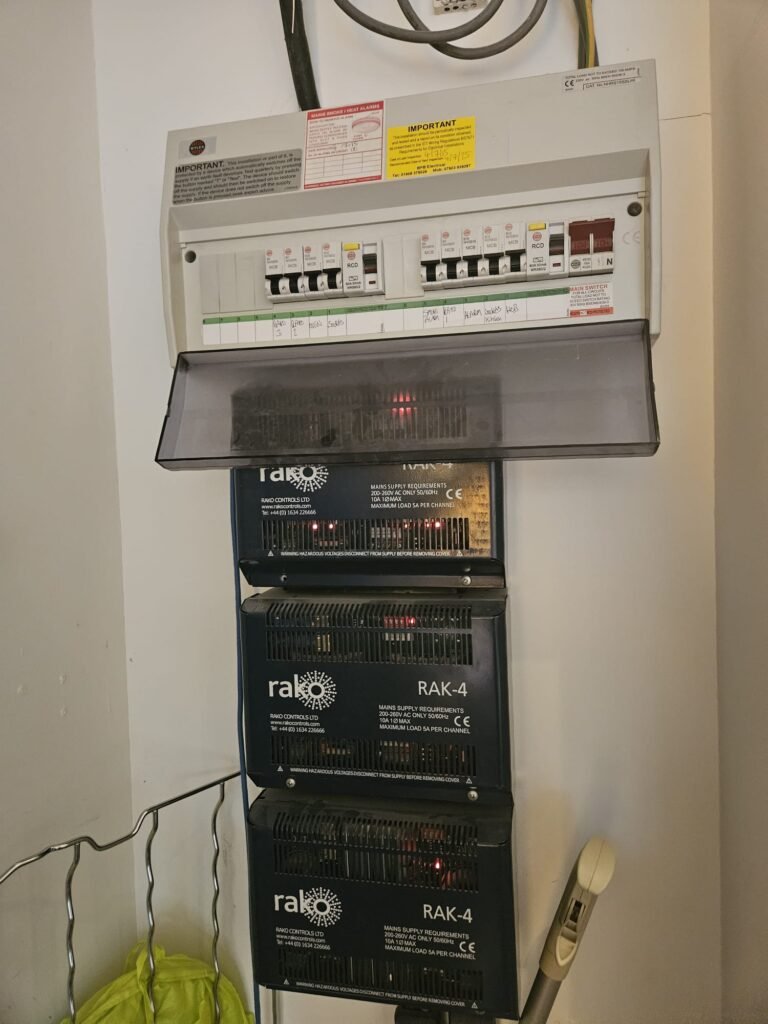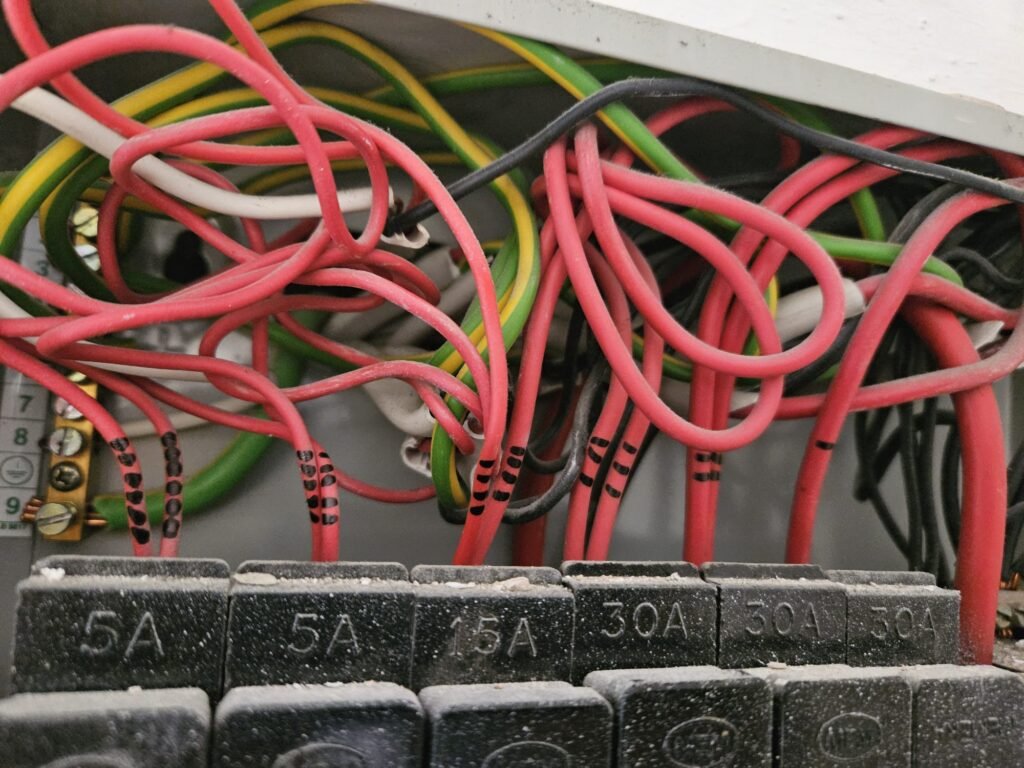Electricity is an essential part of our daily lives, powering everything from our morning kettles to the evening television. But with the convenience it brings, electricity also carries the risk of serious emergencies if not handled with care. In UK homes, electrical emergencies are more common than many people think, and being able to recognise the signs early could prevent major damage—or worse, a fatal accident. Understanding the most common electrical emergencies can help you react quickly and appropriately. Whether it’s a tripping circuit breaker, sparking sockets, or a full-blown power outage, knowing what to look for and when to call an electrician could make all the difference. In this blog, we’ll explore the most frequent electrical emergencies found in UK households, how to spot them, and why timely action is so important.
Power Cuts and Sudden Loss of Electricity
One of the most immediate and noticeable electrical issues is a sudden loss of power. It might affect just a single room or the entire house. Sometimes, it’s simply a case of a tripped fuse or a faulty appliance, but at other times, it could indicate a much more serious issue such as overloaded circuits, damaged wiring, or external power supply problems. In the UK, power cuts are often caused by local grid issues, particularly during storms or maintenance work. However, if your house is the only one on the street without electricity, that suggests the problem lies internally. Frequent power cuts within the home, especially without any clear pattern, might indicate deteriorating wiring or an outdated consumer unit. It’s best to avoid tinkering and get a qualified electrician to assess the system.
Burning Smells and Scorch Marks Around Sockets
A faint burning smell with no clear source is an often-overlooked sign of an electrical emergency. If this smell is coming from a plug socket, a light switch, or any other electrical fitting, it’s a clear warning that something is overheating. The smell is usually caused by insulation or plastic components beginning to melt due to heat generated by faulty wiring or loose connections. If you spot scorch marks around sockets or switches, stop using them immediately. This kind of dis-colouration indicates that an electrical fire might have already started or was narrowly avoided. Overheating outlets can lead to full electrical fires if not addressed quickly, and many domestic fires in the UK each year are traced back to issues like these.



Circuit Breakers That Constantly Trip
Circuit breakers are designed to protect your home by cutting off the flow of electricity when there’s a fault. While they might trip now and again due to a one-off overload—such as plugging in a faulty appliance or using too many high-powered devices at once—persistent tripping is a cause for concern. If your circuit breaker trips regularly, there’s likely a deeper issue such as a ground fault, short circuit, or defective wiring. These types of faults can lead to fire or electrocution risks if ignored. In some older UK homes, the wiring may not be up to modern standards, which means the electrical system can struggle to cope with today’s energy demands. Upgrading your consumer unit and wiring is often the safest solution.
Electric Shocks from Switches or Appliances
Getting a small shock when turning on a light switch or touching an appliance is not something to brush off. Even a mild shock indicates that there is an issue with earthing or grounding, and this is a major red flag. In the UK, proper earthing is a key safety requirement for all electrical systems. A poorly grounded system can cause electricity to flow through unintended paths, such as through a person. Electric shocks can occur if an appliance is faulty, if the wiring is damaged, or if water has gotten into an electrical outlet. Water is a strong conductor, and even a small leak near a plug socket or switch could create a highly dangerous situation. It’s crucial to stop using the affected equipment immediately and call an electrician to diagnose and repair the problem.
Flickering or Dimming Lights
Lights that flicker or dim unexpectedly aren’t just an annoyance—they can signal more serious issues within your electrical system. While a single flickering light might just need a new bulb, widespread flickering throughout the house can indicate fluctuating voltage or loose wiring. Dimming lights when turning on appliances like a washing machine or vacuum cleaner is a sign that the circuit is overloaded or that your wiring is struggling to handle the load. In the UK, this kind of voltage inconsistency is often seen in older homes where the wiring hasn’t been updated for decades. It’s a good idea to have your wiring inspected by a professional if flickering lights are a recurring issue. Left unchecked, this could lead to overheating and potential fire hazards.
Buzzing or Crackling Noises from Sockets or Switches
If you hear unusual sounds like buzzing, crackling, or humming coming from a plug socket, switch, or even behind the walls, that’s a sign that something is wrong. Electricity should operate silently. Noises indicate that the current might be arcing, which happens when electricity jumps across a gap—something that should never occur in a properly functioning system. This problem can be caused by loose wiring, damaged insulation, or worn-out components. Arcing faults are especially dangerous as they often occur out of sight and can generate enough heat to start a fire. It’s one of those problems that’s easy to ignore because it might seem minor at first, but in reality, it requires urgent attention from a qualified professional.
Overloaded Extension Leads and Adapters
UK households frequently rely on extension leads and multi-socket adapters, particularly in homes that lack enough outlets. However, overloading these leads by plugging in too many high-wattage appliances can easily create an electrical emergency. This is especially true in rooms like the kitchen or home office, where multiple devices are often used simultaneously. An overloaded extension lead can overheat, melt, and even catch fire. Appliances such as kettles, toasters, heaters, and microwaves draw a significant amount of power and should ideally be plugged directly into the wall. If your leads are hot to the touch or if the fuse inside the plug has blown, it’s time to reassess your setup. Having additional sockets professionally installed is a far safer alternative.
Wet or Damp Electrical Outlets
Moisture and electricity are a deadly combination. In the UK, where damp and condensation are common issues—especially in older properties or homes with poor ventilation—this poses a particular challenge. Water ingress into electrical outlets can cause short circuits, corrosion of components, and a significantly increased risk of shock or fire. Common places for this to happen include kitchens, bathrooms, garages, and even garden areas where outdoor sockets may not be properly sealed. If you suspect moisture has entered any part of your electrical system, don’t touch it. Turn off the power at the consumer unit and contact an electrician right away.
Sudden Appliance Failures
When a major appliance like a washing machine, oven, or boiler stops working without warning, it’s tempting to blame the appliance itself. But in many cases, the real issue lies in the home’s wiring or the power supply to that specific circuit. If multiple appliances seem to fail or show signs of struggling—such as dimming displays, flickering lights, or tripped fuses—this can point to a fault in the system rather than the devices themselves. It’s important not to ignore these symptoms. A faulty connection or an overloaded circuit may be at the heart of the problem, and continuing to use the circuit can be dangerous. A professional inspection can pinpoint the cause and prevent long-term damage to both the wiring and your appliances.
When to Call a Qualified Electrician
In the UK, all electrical work should comply with Part P of the Building Regulations. This means that any work carried out in your home must meet specific safety standards. Attempting to DIY your way through an electrical emergency is not only dangerous, but it could also invalidate your home insurance or even result in prosecution if not done legally. If you’re experiencing any of the issues above, or even if something just feels off with your electrical setup, it’s always better to err on the side of caution. Qualified electricians registered with a body like NICEIC or NAPIT can ensure that any repairs or upgrades are carried out safely and in line with current regulations.
Staying Safe and Prepared
Electrical emergencies can strike at any time, but the good news is that many of them are preventable. Regular inspections, using qualified professionals, and upgrading outdated systems can go a long way in keeping your home safe. In addition, learning to recognise the warning signs—like burning smells, tripping circuits, or buzzing outlets—means you can act quickly before a minor issue becomes a major hazard. In the UK, more than half of all domestic fires are related to electrical faults. That’s a sobering statistic, but one that also highlights just how important it is to take electrical safety seriously. Staying vigilant, planning ahead, and knowing when to call in help are the best ways to protect your home and loved ones.
